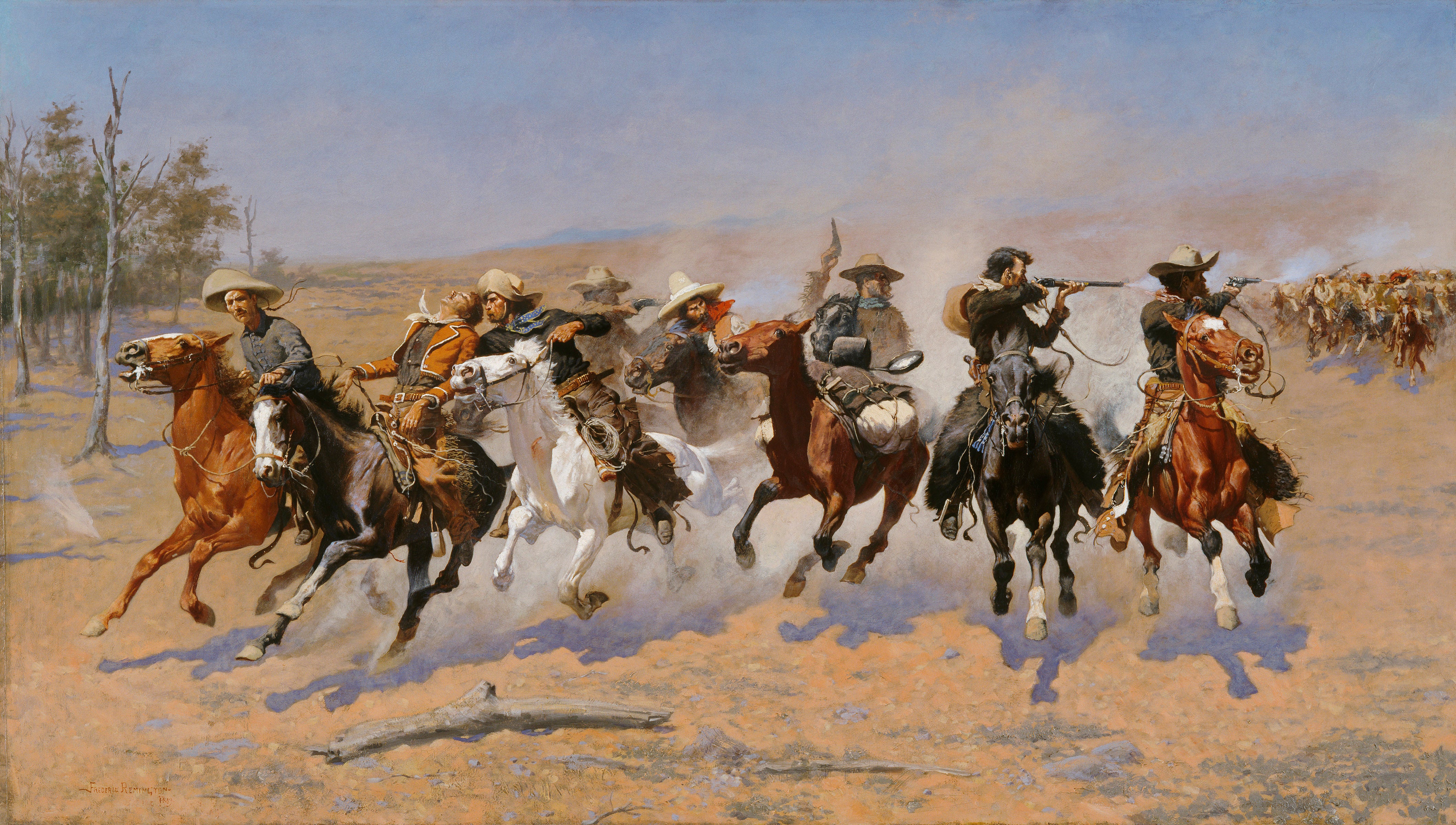Discovering the Legacy of Frederic Remington: A Master of Western Art and Sculpture
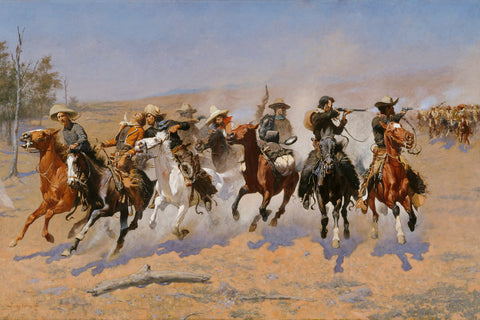
image: A Dash for the Timber
Introduction
In the realm of American art, few names evoke as much reverence and admiration as Frederic Remington. Renowned for his masterful portrayal of the American West, Remington's artistry transcends time, capturing the essence of an era long gone. This comprehensive article delves deep into the life and works of Frederic Remington, aiming to provide an insightful exploration that stands unparalleled on the vast landscape of the internet.
Early Life and Artistic Beginnings
Born on October 4, 1861, in Canton, New York, Frederic Sackrider Remington displayed an early affinity for art. His keen eye for detail and an innate ability to capture the spirit of his subjects became evident from a young age. Remington's artistic journey officially commenced during his time at Yale University, where he honed his skills and developed a unique style that would later define the genre of Western art.
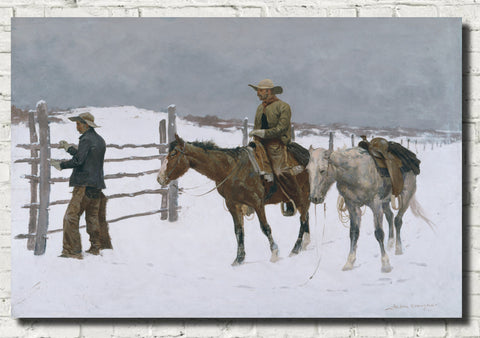
image: The Fall of the Cowboy
The Pioneering Spirit of Western Artistry
Remington's artistic repertoire predominantly focused on the American West, a land of untamed wilderness, rugged cowboys, and indigenous peoples. His ability to depict the raw beauty and harsh realities of this frontier life established him as a pioneering force in Western artistry. Through a meticulous interplay of light and shadow, Remington's paintings and sculptures breathed life into his subjects, immortalizing the spirit of the American frontier.
Iconic Works: A Glimpse into Remington's Genius
The Broncho Buster
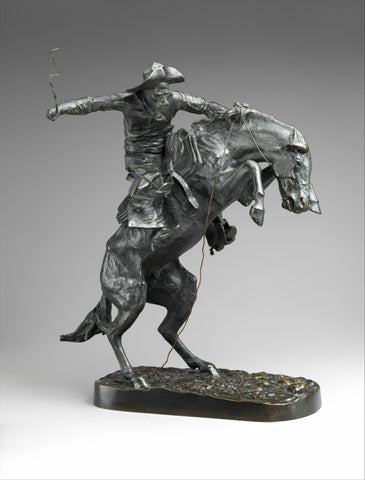
One of Remington's most iconic sculptures, The Broncho Buster, epitomizes the essence of the American cowboy. Crafted with unparalleled precision, this bronze masterpiece captures the raw energy of a cowboy taming a bucking bronco, symbolizing the indomitable spirit of the American West.
The Call for Help
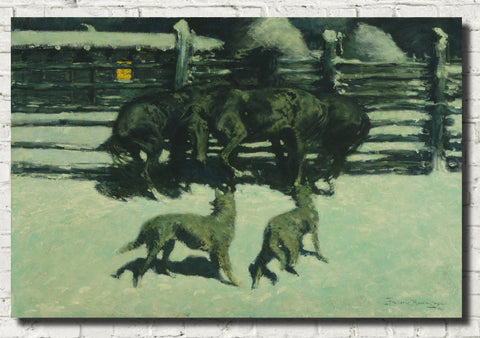
Remington's painting, "The Call for Help," vividly portrays the symbiotic relationship between settlers and Native Americans. With striking realism, he illustrates a pivotal moment of unity and cooperation, highlighting the intricate dynamics of the West during a time of change and adaptation.
Legacy and Influence
Frederic Remington's legacy extends far beyond his artistic contributions. His works serve as historical artifacts, offering a glimpse into the challenges and triumphs of the American frontier. Today, museums and art enthusiasts around the world celebrate his genius, ensuring that future generations continue to be inspired by his timeless creations.
Embracing Remington's Vision: A Call to Art Enthusiasts
In honoring Frederic Remington's unparalleled legacy, we invite art enthusiasts and historians alike to delve into his world. By appreciating the intricate details and profound narratives embedded in his works, we preserve the rich tapestry of American history. Let us unite in our shared passion for art, ensuring that Remington's legacy remains vibrant and enduring.
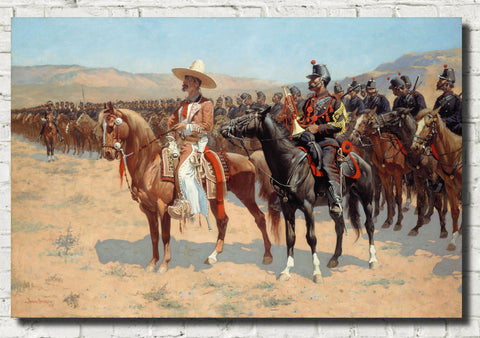
image: The Mexican Major
Frederic Remington FAQ's
Q1: Who was Frederic Remington? A1: Frederic Remington (1861-1909) was an American artist, sculptor, and writer known for his iconic depictions of the American West.
Q2: What art mediums did Remington work in? A2: Remington primarily worked in painting, sculpture, and illustration. He was renowned for his detailed bronze sculptures and vivid paintings.
Q3: What subjects did Remington often depict in his artworks? A3: Remington focused on Western themes, including cowboys, Native Americans, landscapes, and scenes from the American frontier.
Q4: Did Remington have formal art training? A4: No, Remington was largely self-taught as an artist. He gained experience through his travels and observations of the West.
Q5: What is Remington's most famous artwork? A5: One of his most famous paintings is "The Broncho Buster," a bronze sculpture depicting a cowboy breaking a wild horse.
Q6: How did Remington contribute to the portrayal of the American West in art? A6: Remington's works romanticized the American West, shaping popular perceptions of the frontier through his artistic interpretations.
Q7: Did Remington document Native American culture in his artworks? A7: Yes, Remington depicted Native American life and culture, often portraying their daily activities and rituals in a respectful manner.
Q8: Did Remington have other artistic talents? A8: Besides his skills in painting and sculpting, Remington was a prolific writer and correspondent, often illustrating his own articles and stories.
Q9: Where can I view Remington's artworks today? A9: Remington's artworks are displayed in various museums and galleries, including the Frederic Remington Art Museum in New York and the Amon Carter Museum of American Art in Texas.
Q10: What was Remington's impact on Western art? A10: Remington played a pivotal role in shaping the visual language of the American West, leaving a lasting legacy and influencing generations of artists.

